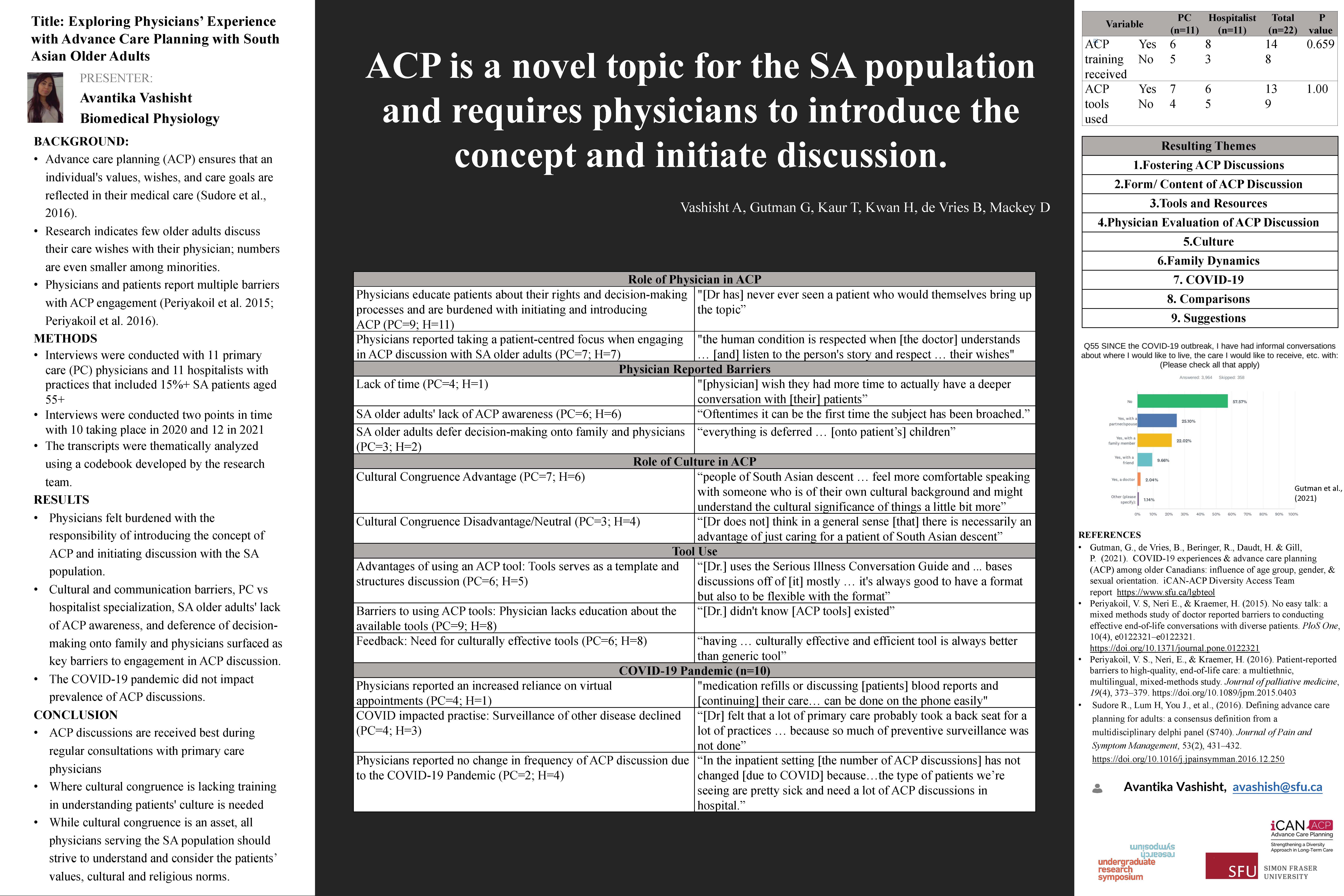Exploring Physicians’ Experience with Advance Care Planning with South Asian Older Adults
Main Article Content
Abstract
Physicians and patients report multiple barriers with Advance care planning (ACP) engagement, including communication barriers, patients' cultural and religious beliefs, and the physicians' approach. In this project interviews with primary care physicians (PC) and hospitalists were conducted at two points in time: Jan-Apr 2020 (n=12) and May-Oct 2021 (n=10). Transcripts were thematically analyzed and comparisons drawn between PC and hospitalists and between physicians interviewed in 2020 and 2021. Nine themes emerged indicating physicians felt burdened with responsibility of introducing the concept of ACP and initiating discussion with the South Asian (SA) population. Cultural and communication barriers, physician specialty, SAs’ lack of ACP awareness, and deference of decision-making onto family and physicians surfaced as key barriers to engagement in ACP discussion. While impacting physician practice, most reported no change in engagement/ acceptance of ACP discussion due to the pandemic. Findings suggest ACP discussions are received best during regular consultations with PCs working with the SA population; however, only 55% of PC interviewed had ACP training and only 64% had used available tools. Education targeted to physicians serving the SA population is needed. For those lacking cultural congruence, training should be directed towards understanding patients’ culture. While cultural congruence is an asset, all physicians serving the SA population should strive to understand and consider the patients’ values, cultural and religious norms. Training in ACP facilitation and concerning suitable tools to use/adapt for this population is also recommended as is training in patient-physician communication– the latter for both physicians and their SA patients.
Faculty Supervisor: Dr. Dawn Mackey, Biomedical Physiology and Kinesiology, Simon Fraser University
Article Details

This work is licensed under a Creative Commons Attribution-NonCommercial-NoDerivatives 4.0 International License.

